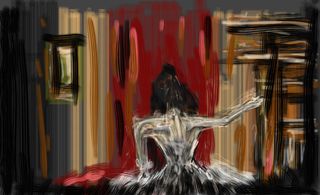by Dr Raj Persaud – Psychiatrist in Private Practice in Harley Street, London and Dr Kathleen Martin Ginis, Professor of Exercise Psychology, McMaster University, Canada.
Joan Bakewell, an eminent member of the UK House of Lords, is apologising for comments she made linking anorexia to narcissism.
The BBC News and other media sites report that she is now ‘deeply sorry’ for causing ‘distress’ by suggesting the rise of eating disorders among teenagers was a sign of ‘narcissism’ in society. In an earlier interview with The Sunday Times Newspaper, Baroness Bakewell, who is currently chairing a distinguished book prize panel, claimed anorexia was ‘a sign of the overindulgence of our society, over-introspection, narcissism really’.
The apology follows a raft of criticism of her comments, including mental health anti-stigma campaigns, along with heated debate on social media.

The scientific study of eating disorders suggests that both sides of the camp on this debate might be right. This paradox is resolved because there might be more than one kind of narcissist.
Kathryn Gordon and Joseph Dombeck from the Department of Psychology, North Dakota State University, with an academic interest in eating disorders, open their study on the subject with the comment: ‘The literature consistently reports a link between narcissism and eating disorder symptoms’.
Their investigation, entitled, ‘The associations between two facets of narcissism and eating disorder symptoms’, investigated 355 male and female undergraduate students.
The study, published in the academic journal, ‘Eating Behaviors’, found that ‘vulnerable’ narcissism tended to be associated with eating disorder symptoms, and this relationship was partially linked to self-worth being dependent upon looks.
‘Vulnerable’ narcissism might be a risk factor for eating disorders because of a drive to improve self-worth through the enhancement of physical appearance.
Perhaps one of the reasons Baroness Bakewell’s comments attracted so much criticism was a misunderstanding that narcissism can come dressed in different packages, and in the clinical world doesn’t just mean mere ‘vanity’.
Narcissism in this study involved two types: a grandiose and a vulnerable kind.
Grandiose narcissists suffer from fantasies of unlimited success, power, while believing they are ‘special’, and therefore require excessive admiration.
Grandiose narcissists maintain their positive self-views by devaluing others’ opinions, exaggerating their sense of superiority, and acting aggressively toward critics.

While vulnerable narcissism shares some features of grandiose narcissistic personality disorder – it is more characterized by hypersensitivity to the opinions of others, insecurity, an intense desire for approval, and poor self-image.
Rather than exhibiting arrogant attitudes, when they perceive negative feedback from others, ‘vulnerable’ narcissists tend to experience intense humiliation and to withdraw from social encounters so avoiding real or imaginary disparagement.
Perhaps vulnerable narcissists’ relentless determination to achieve a sense of self-worth through enhancement of their looks leads them to resort to excessive dieting. Even though grandiose narcissists also excessively attend to their appearance, they may be shielded from eating disorder symptoms because they do not found their self-worth on looks.
Their tendency to cope with feedback by derogating other’s opinions, because of grandiosity protects them from excessive preoccupation with weight.
Another way of understanding narcissism is to focus on narcissistic defences – these internal psychological mechanisms are how we all maintain self-esteem against threat. So there is a sense in which we all suffer from narcissism from time to time and indeed a little bit might be essential to maintain self-esteem amidst the slings and arrows of everyday life.
But if, for example, a narcissist applies for a job but fails the interview, they will blame this rejection on the sheer idiocy of the interviewers, rather than not possibly being the best candidate. This is termed the ‘bad you’ defence mechanism and might be characteristic of a certain kind of narcissist.
A study in the ‘International Journal of Eating Disorders’, entitled ‘Narcissism and Narcissistic Defences in the Eating Disorders’, indeed found that the ‘poor me’ defence style was the narcissistic defence approach most strongly associated with the core thought processes of the eating disordered.
The ‘poor me’ defence style sees oneself as being poorly treated by others.
Thus, the presentation is a ‘martyred’ one, where self-esteem is maintained by seeing the self as being misunderstood and subject to intolerable demands.
The ‘poor me’ defence style stands in contrast to ‘bad you’ approach, otherwise referred to as ‘poisonous pedagogy’. This involves seeing others as wrong and in need of direction. Narcissists deploying the ‘bad you’ defence typically view their therapist as being faulty; needing to be taught their job by the patient. There was some link between certain eating disordered attitudes and ‘bad you’, in the study, but the ‘poor me’ defence mechanism was more strongly linked with eating disorders.
The authors of this study, Glenn Waller, Jennie Sines, Caroline Meyer, Emma Foster and Anna Skelton, contend narcissistic defences could be the focus of clinical attention in treating and understanding eating disorders.
The wave of aggressive criticism that broke over Baroness Bakewell following her comments on the link between narcissism and anorexia, an association which has actually some foundation in the research literature, may have been because narcissism means different things depending on the contrasting types, or whether you are referring to a particular defence mechanism.
Ironically, in all the mutual recrimination, was there a hint of the classic narcissistic defence of ‘bad you’?
Follow Dr Raj Persaud on Twitter: www.twitter.com/(link is external)@DrRajPersaud
Raj Persaud and Peter Bruggen are joint podcast editors for the Royal College of Psychiatrists and also now have a free app on iTunes and Google Play store entitled ‘Raj Persaud in conversation’, which includes a lot of free information on the latest research findings in mental health, plus interviews with top experts from around the world.
Download it for free from these links:
https://play.google.com/store/apps/details?id=com.rajpersaud.android.raj(link is external)
https://itunes.apple.com/us/app/dr-raj-persaud-in-conversation/id9274662(link is external)
Dr Raj Persaud’s new novel ‘Can’t Get You Out Of My Head’ on the narcissism of stalking and obsessive love is released in support of UK National Stalking Awareness Week April 18th, all proceeds from sales donated to the Suzy Lamplugh Trust the UK’s anti-stalking personal safety charity.
Leave a comment